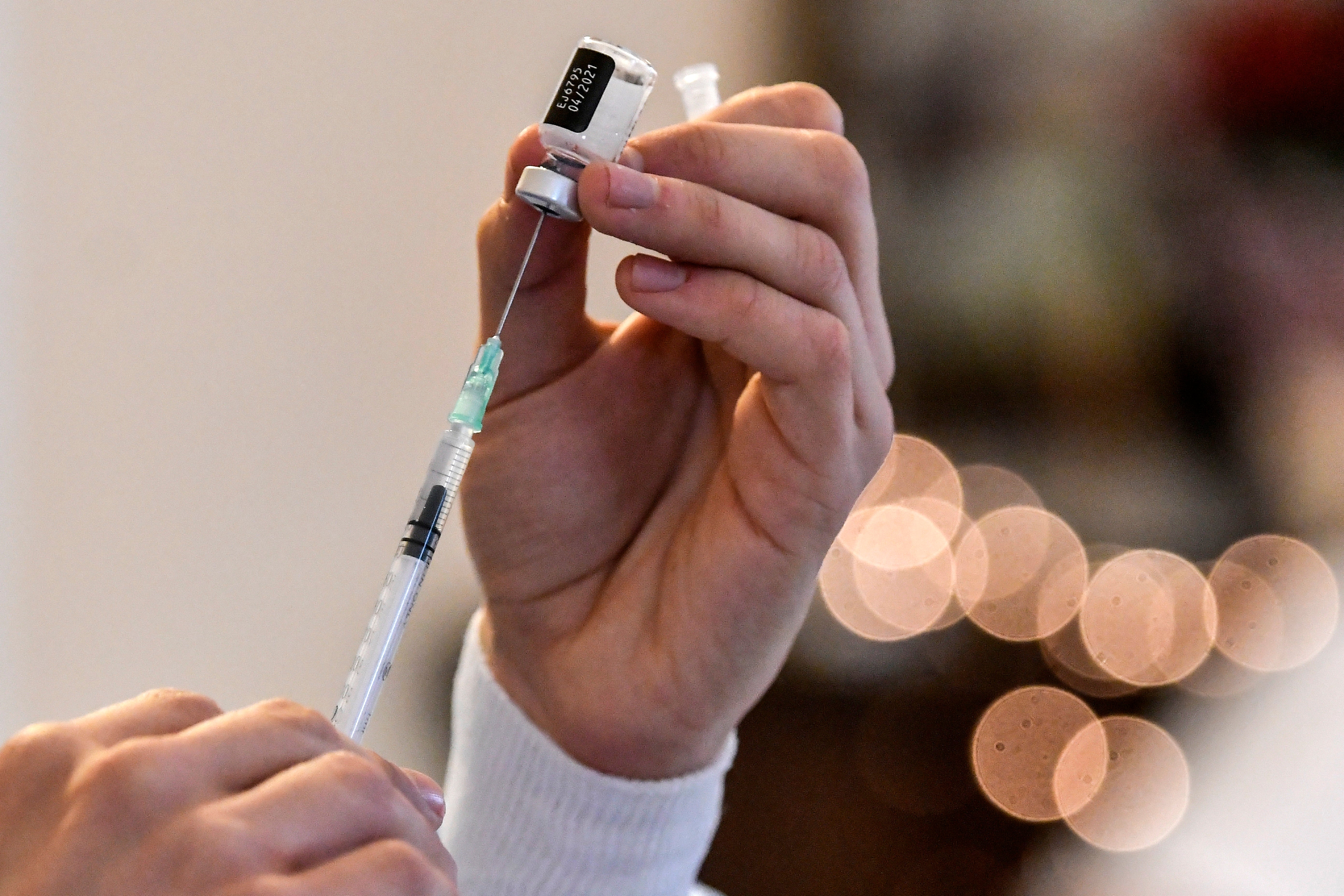EU rejects criticism for slow vaccine rollout across bloc
The European Commission has defended its coronavirus vaccination strategy amid growing criticism from member nations about the slow rollout of COVID-19 shots across the region with 450 million inhabitants

Your support helps us to tell the story
From reproductive rights to climate change to Big Tech, The Independent is on the ground when the story is developing. Whether it's investigating the financials of Elon Musk's pro-Trump PAC or producing our latest documentary, 'The A Word', which shines a light on the American women fighting for reproductive rights, we know how important it is to parse out the facts from the messaging.
At such a critical moment in US history, we need reporters on the ground. Your donation allows us to keep sending journalists to speak to both sides of the story.
The Independent is trusted by Americans across the entire political spectrum. And unlike many other quality news outlets, we choose not to lock Americans out of our reporting and analysis with paywalls. We believe quality journalism should be available to everyone, paid for by those who can afford it.
Your support makes all the difference.The European Commission defended its coronavirus vaccination strategy Monday amid growing criticism in member states about the slow rollout of COVID-19 shots across the region with 450 million inhabitants.
Vaccinations programs in the 27 nation-bloc have gotten off to a slow start and some EU members have been quick to blame the EU's executive arm for a perceived failure of delivering the right amount of doses. In Finland, health authorities are reportedly unhappy that the country only received about 40,000 doses in December, instead of the 300,000 that were expected,
Facing a barrage of questions on vaccines during a press conference, EU Commission spokesman Eric Mamer said the main problem with the deployment of vaccination programs “is an issue of production capacity, an issue that everybody is facing."
“We have actually signed contracts that would allow member states to get access to 2 billion doses, largely enough to vaccinate the whole of the EU population," he said. The bloc has nearly 450 million people.
As part of its strategy, the EU has sealed six vaccines contracts with Moderna, AstraZeneca, Sanofi-GSK, Janssen Pharmaceutica NV, Pfizer-BioNTech and CureVac. But only the Pfizer-BioNTech vaccine has been approved for use so far in the 27-nation bloc. The EU’s health regulator is expected to decide on Wednesday whether to recommend authorizing the Moderna vaccine.
Mamer also clarified the role of the commission in securing contracts with potential drug makers. He said the commission did not directly buy doses of vaccines but “acted as an investor" to provide funding to pharmaceutical companies developing vaccines. The goal was to speed up production capacities and research, with all EU nations free to decide how many doses they would buy from the vaccine producers of their choice.
“Ultimately, these vaccines have to be produced, delivered, and some of the logistic chains involved are very sophisticated," Mamer said, insisting that vaccination programs have just started, and that the big deliveries of doses are foreseen around April.
Asked why the Commission did not buy more doses of the Pfizer/BioNTech vaccine, Stefan de Keersmaecker, the Commission's health policy spokesman, said the “main philosophy was to diversify our portfolio, not to put all our eggs in one basket."
De Keersmaecker said the contract with Moderna provides for an initial purchase of 80 million doses on behalf of all EU nations but that the commission intends to use its option to request a further 80 million doses once the vaccine is approved. With the Pfizer-BioNTech vaccine, the commission has an option for an extra 100 million doses that will bring the total to 300 million shots. Both vaccines require two shots to be fully effective.
___
Follow AP coverage of the virus outbreak at https://apnews.com/hub/coronavirus-pandemic and https://apnews.com/hub/coronavirus-vaccine and https://apnews.com/UnderstandingtheOutbreak